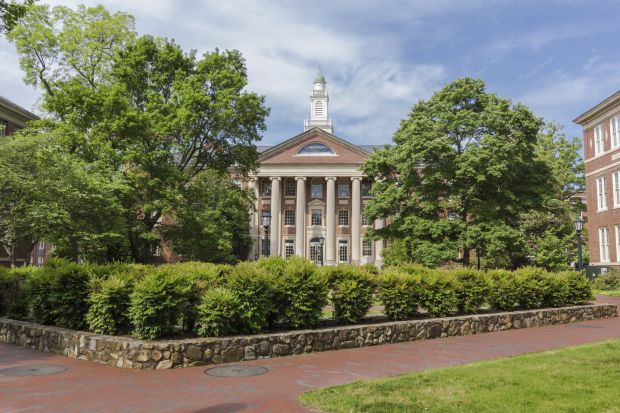The chairman of the University of North Carolina’s governing board has resigned following criticism from academics and students over the institution’s “secretive” search for a new president.
John Fennebresque announced his resignation yesterday (26 October), just three days after the governing board elected Margaret Spellings, former US secretary of education, as its new president.
Mr Fennebresque acknowledged completing this task as a reason for stepping down.
“I am delighted we could bring in a nationally proven and accomplished leader to serve as the next president of this great university system,” he said.
“With the search completed, I believe now is the time for a fresh start for our university system and its 17 campuses, as well as for this board of governors. So today I am stepping down from the board to make way for and encourage new leadership.”
The resignation follows criticism from staff and students at universities in North Carolina, who condemned the board of governors for failing to consult staff during the election process.
The University of North Carolina system’s board of governors announced in January that current president and Democrat Thomas Ross would leave next year, after being at the helm since 2011, as it was time for a “leadership transition”, but critics claim it was a politically motivated move by an all-Republican board, according to Inside Higher Education.
The University of North Carolina’s Faculty Assembly, which represents professors and university staff and serves in an advisory capacity to the university system, issued a statement ahead of the public election announcement on Friday, claiming that the system’s governing board had repeatedly ignored staff input, “frequently promulgated ill-advised policies and practices that have proven detrimental to the best interest of public higher education”, and pushed forward a secretive process to find a new leader.
“The recent mismanagement of the executive office of the university, from the firing of Thomas Ross, to the hiring of the new president, is but the most egregious in a long train of problematic governance actions,” it said.
It also criticised Ms Spellings’ “own indifference to consulting with staff and faculty” when she was an active candidate for the position, which it said will make it difficult to win the confidence and trust of the university community.
Students and professors at the University of North Carolina at Chapel Hill held up protest signs reading “We need a system that represents students,” and “#ShutDownBOG”, a reference to the board of governors, during the election, according to ABC 11.
Ms Spellings, current president of the George W Bush Presidential Center, who served in the cabinet under Mr Bush from 2005 to 2009, created the Commission on the Future of Higher Education, which focused on how well colleges and universities were preparing students for the 21st-century workplace and how well high schools were preparing students for post-secondary education.
She will begin her new role on 1 March 2016.
Her appointment is the latest in a trend of US university systems appointing professionals over academics for top positions. Other recent examples include former secretary of homeland security Janet Napolitano, who was appointed president of the University of California system in 2013, and former IBM executive Bruce Harreld, who has been announced as the University of Iowa’s next president.




